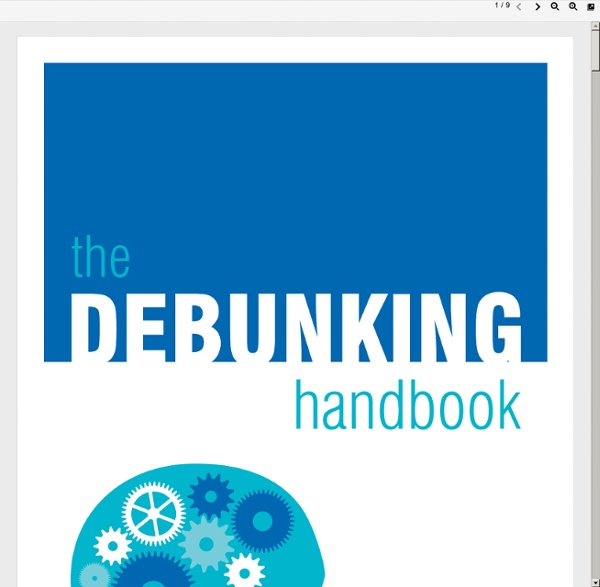



Clive Thompson on Why Kids Can’t Search | Magazine Illustration: Tymn Armstrong We’re often told that young people tend to be the most tech-savvy among us. But just how savvy are they? But Pan pulled a trick: He changed the order of the results for some students. Other studies have found the same thing: High school and college students may be “digital natives,” but they’re wretched at searching. Who’s to blame? Consider the efforts of Frances Harris, librarian at the magnet University Laboratory High School in Urbana, Illinois. But, crucially, she also trains students to assess the credibility of what they find online. “I see them start to get really paranoid,” Harris says. One can imagine even more entertaining ways to help kids grok the intricacies of the search world. Mind you, mastering “crap detection 101,” as digital guru Howard Rheingold dubs it, isn’t easy. In other words, Google makes broad-based knowledge more important, not less. Email clive@clivethompson.net.
How to learn to concentrate | Brainframe I wish I had a pound for every parent who said “If only he would just learn to concentrate.” It’s a comment that appears frequently and seems to be at the root of all learning. The fact that “my child can’t concentrate” is blamed for all the problems. There have been studies involving diet, exercise and a number of other factors. Some are ignored, some end up as a daily pill. For most of us the major cause of lack of concentration can boil down to environment and expectation. It seems obvious to turn off the TV in order to aid concentration. There are few jobs that require absolute concentration. How can we then expect our children to concentrate? I’m not suggesting that every subject is contained in 10 minute blocks but the ability to concentrate is learned over a period of time. Sometimes it seems that “thoroughness” has been overtaken by “learning objectives.” That confidence leads to increased concentration. Small steps each day can lead to giant leaps.
Why Do Some People Learn Faster? | Wired Science The physicist Niels Bohr once defined an expert as “a person who has made all the mistakes that can be made in a very narrow field.” Bohr’s quip summarizes one of the essential lessons of learning, which is that people learn how to get it right by getting it wrong again and again. Education isn’t magic. Education is the wisdom wrung from failure. A new study, forthcoming in Psychological Science, and led by Jason Moser at Michigan State University, expands on this important concept. The question at the heart of the paper is simple: Why are some people so much more effective at learning from their mistakes? The Moser experiment is premised on the fact that there are two distinct reactions to mistakes, both of which can be reliably detected using electroenchephalography, or EEG. The second signal, which is known as error positivity (Pe), arrives anywhere between 100-500 milliseconds after the mistake and is associated with awareness. Image: mujalifah/Flickr
Why Being Sleepy and Drunk Are Great for Creativity | Wired Science Here’s a brain teaser: Your task is to move a single line so that the false arithmetic statement below becomes true. Did you get it? In this case, the solution is rather obvious – you should move the first “I” to the right side of the “V,” so that the statement now reads: VI = III + III. Not surprisingly, the vast majority of people (92 percent) quickly solve this problem, as it requires a standard problem-solving approach in which only the answer is altered. What’s perhaps a bit more surprising is that nearly 90 percent of patients with brain damage to the prefrontal lobes — this leaves them with severe attentional deficits, unable to control their mental spotlight — are also able to find the answer. Here’s a much more challenging equation to fix: In this case, only 43 percent of normal subjects were able to solve the problem. Of course, this doesn’t mean you should take a hammer to your frontal lobes. This helps explain a new study led by Mareike Wieth at Albion College.
Concentration Exercises for Training and Focusing the Mind By Remez Sasson Concentration exercises sharpen the mind and improve the ability to concentrate. Read the article first, or go right to the concentration exercises below. These are mental exercises that will strengthen the power of your mind. The Power of Concentration - Practicing Concentration Exercises Sharpening the needle of concentration requires practice, like everything else in life. Do you go to the gym? Have you studied a foreign language? It is the same with developing your concentration. Your mind does not like discipline, and will resist your efforts to discipline it. The choice is yours, to be mastered by the mind and its whims, or to be its master. Below, you will find a few simple concentration exercises. You are not the mind, nor the thoughts that pass through it. Most people believe that they are the mind, and erroneously believe that controlling the mind means holding themselves back and denying their freedom. How to Focus Your MindDoes your attention often wander away?